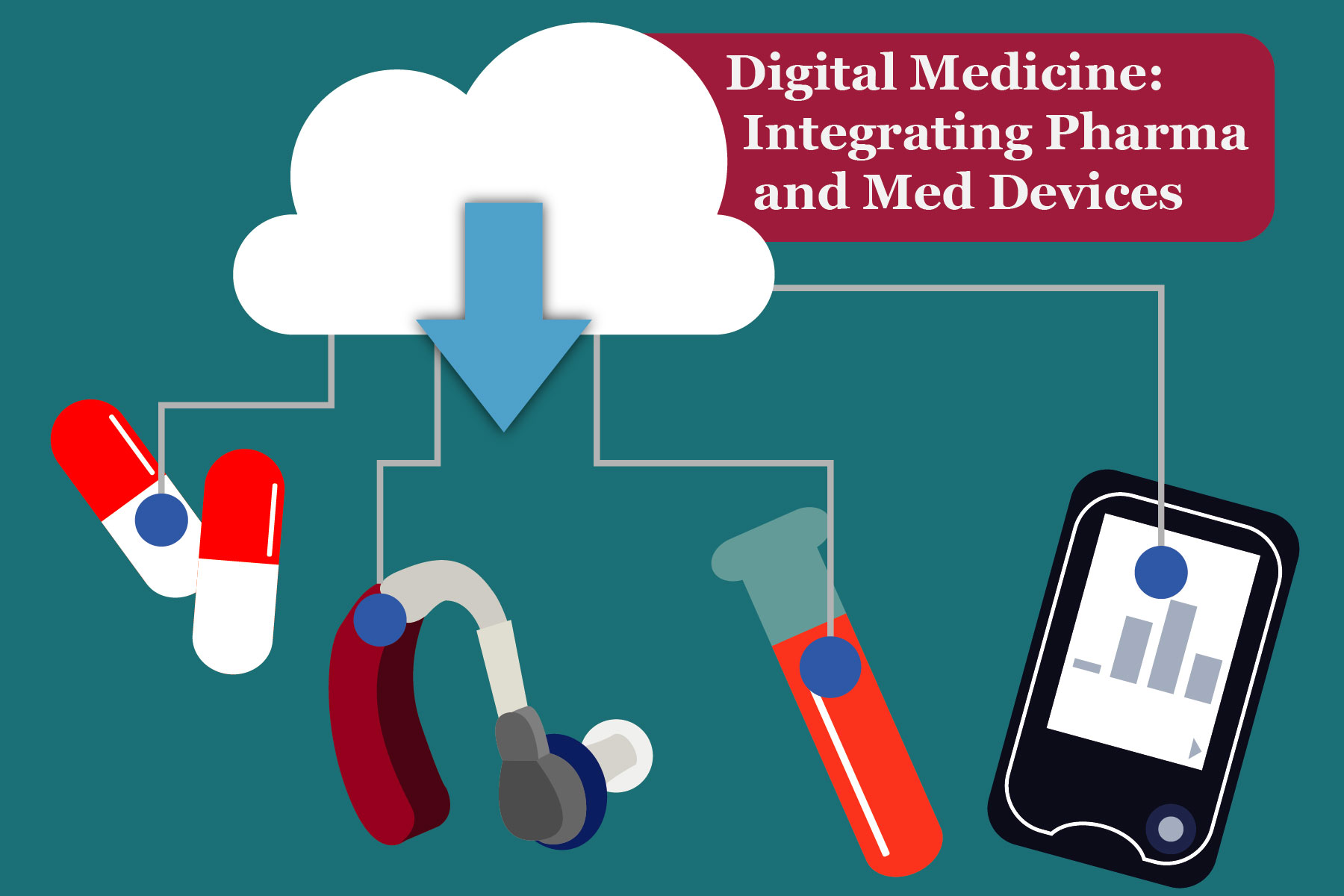With the recent pandemic, one of the most crucial medical services is that of Digital Medicine. It is the merger of the medical device, pharma industries, and modern technology to better track and understand the physiological systems along with the generation of analytics based on the continuously growing patient data sets.1
Digital medicine is a field derived from the Pharmaceutical and medical device industries. A digital medicine paradigm would be the 2018 FDA approved Drug-Device Combination (DDC) pill with a sensor that digitally tracks if patients have ingested their medication or not.2 FDA has been supporting committees and organizations that manage regulatory requirements for the products produced by the combination of drugs and devices. Such entities assist pharmaceutical and medical device manufacturers to convert their ideas into actual innovations, improving the quality of patient health care.
Practicing digital health with digital medicine facilitates patient treatment, recovery, disease prevention, and health promotion for individuals and across populations. Of many elements in digital medicine, the key parameters are the analysis and monitoring. Based on compact algorithms and data-driven processes, decisions, and notifications are generated to inform patients, doctors, clinicians, and manufacturers about the current state of the system including any anomalies.3 Such technology-centered medical devices empower consumers to make better informed decisions about their health and provide new options for prevention, early diagnosis of mild to life-threatening diseases, and management of chronic conditions outside of traditional care settings.
Surely, quality and safety are pivotal governing factors for a medical device to be functional in an industrial or commercial setting. The clearance for such factors is given by FDA through a premarket notification submission such as 510k or a De Novo. Do you have a medical device powered by digital medicine that needs FDA approval? Our regulatory experts at EMMA International can help ensure your product is compliant with the FDA regulatory requirements. Contact us at 248-987-4497 or info@emmainternational.com for additional information.
1Saket Kamat (May 2018) Digital Medicine: The Connection Between Pharma and Medical Devices. Retrieved on 08/18/2020 from https://decisionresourcesgroup.com/blog/digital-medicine-connection-pharma-medical-devices/
2FDA (June 2020). Digital Health. Retrieved on 08/19/2020 from https://www.fda.gov/medical-devices/digital-health.
3Coravos, A., Goldsack, J. C., Karlin, D. R., Nebeker, C., Perakslis, E., Zimmerman, N., & Erb, M. K. (2019). Digital medicine: a primer on measurement. Digital Biomarkers, 3(2), 31-71. Retrieved on 08/19/2020 from https://www.karger.com/Article/FullText/500413.





